Dear Artist,
Drawing mastery is understanding our world and understanding relationships. Contrary to popular belief, drawing doesn’t mean trailing a line around things — it means seeing and reporting the relative distances between things. Drawing is a non-literary way of looking — and the skill to put down what you see in a two-dimensional way. Drawing mastery takes time and patience.
Colour mastery involves knowing the properties of pigments, both in theory and as chemicals that have certain effects on one another when juxtaposed or mixed. Colour mixes that call for opposites on the colour wheel (complementary), as well as nearby on the colour wheel (analogous), or even so closely related as to appear to be one colour (monochromatic), make for lively and sophisticated effects. Colour mastery takes time and patience.
Abstract understanding doesn’t mean arbitrary sloshing and messing. Abstract art is controlled visual magic based on laws and methodology. Abstraction generally involves implication, suggestion and mystery rather that obvious description. Like a good poem, a good abstraction attacks your feelings before your understanding. Abstraction within realism adds zest and excitement to otherwise dull subject matter. Abstract understanding takes time and patience.
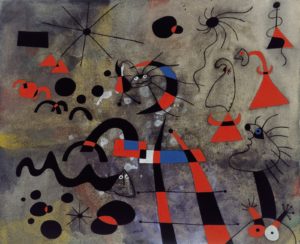
The Escape Ladder (from the Constellation series), 1940
Gouache, watercolor, and ink on paper
15 3/4 x 18 3/4 inches
by Joan Miró
Compositional mastery is a variety of traditional rules that beg to be broken. That’s why composition is the queen of the skills. With composition you learn to control and play with the eye and move it within the picture plane. Composition includes the golden mean, the rule of thirds, big and small, dark and light, activation, circulation, focus, pattern, stoppage and a pile of other ploys, many of them developed by you and unique to yourself. Compositional mastery also means the avoidance of lineups, homeostasis, and a jungle road of potholes too tedious and disheartening to include in a 500-word letter. Learn to compose intelligently in your own vocabulary and you can get away with murder. Compositional mastery takes time and patience.
Emotional evolution means combining basic skills — such as the above — so that a unique voice and engagement occur. Finding your unique voice may not be everything, but it’s way ahead of whatever comes next. Emotional evolution takes time and patience.
Best regards,
Robert
PS: “Skills aren’t enough on their own. Emotion has to come through. But when you’ve got the various skills sewn up, that’s one thing you don’t have to worry about.” (Zoe Benbow)
Esoterica: You can choose to make unskilled art if you wish. Unskilled art has its allure. The mere act of moving paint around can produce joy. Knowing little or nothing in the “how to” department and failing to inquire about it can probably make some people happy and may even be good for the soul. But if you persist in this direction, your unskilled work will be like that of so many others — and you will begin to bore yourself. On the other hand, the skills I suggest are worth learning for their own sake — and they will stand you well no matter what you try to do. They are hard won. We value most what is hard won — and so do many others. Skills worth learning take time and patience.
This letter was originally published as “Five skills worth learning” on February 14, 2012.
Have you considered a Premium Artist Listing? With each letter, an artist is featured at the bottom of this page. The Premium Artist Listings are a means of connecting artist subscribers through their work. Proceeds from each listing contribute to the production of The Painter’s Keys.
“In a picture, it should be possible to discover new things every time you see it. But you can look at a picture for a week together and never think of it again. You can also look at a picture for a second and think of it all your life.” (Joan Miro)
Featured Artist
My statement is pretty short. I love all kinds of paintings and I think Robert Genn is Canada’s finest painter. A great feature of his work are his designs — so beautifully conceived.

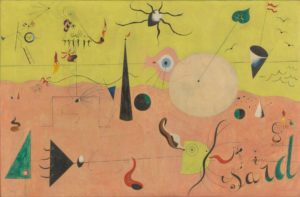
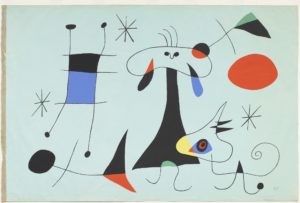
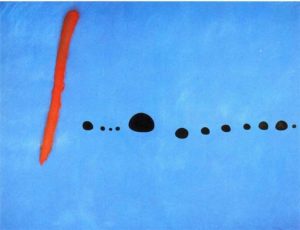
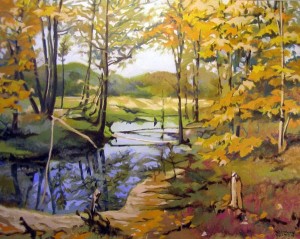



11 Comments
Wow that is putting the imperatives of art making in a succinct capsule. Though much more can be said on each of these categories I want to add one more. CONCEPTUAL thinking is what moves good skills into the arena of ART.
One can learn to draw better with study and practice. Using color seems more god-given to me. though you can learn a lot and improve, some folks seem to get this in a very direct and innate way.
Hopefully, we can go into these subjects more in the coming months of introspection.
Good article as usual
At least ten years ago, I purchased and read and profusely underlined almost every letter in Robert Genn’s book of collected letters. There is no better book about creating art and being an artist. Thank heavens for the wisdom of Robert Genn, and the generosity of his sharing spirit. For his love of the sisterhood and brotherhood of artists. And thank you Sara, for your beautiful heart and keen intelligence. Stay safe and well. Much love to the sisterhood and brotherhood, Nancy
Twice a week, I am delighted to see the painters keys in my email. Always worth the read, and always worth it for the art. The conversation between the text and the art, is why I click on this post every time. Sometimes I am moved to comment, but that I don’t, doesn’t necessarily mean that I am unmoved. I usually am. I click on the post in the hopes of it. Todays offering is a particular delight, because it is one of the most succinct pieces of writing that I have ever read. So few words, to say so much. And Miro, a perfect harmonic visual partner, mirroring the truth of the sentiments expressed, in a way that can only be felt. There is NO meaning without emotion. Emotions defy evaluation, they must be acknowledged, and with compassion, they can be kept in balance. Emotional evaluation, is about “seeing” rather than judging, and that is quite different than what is required to evaluate the other skills.
I teach a class. I teach skills. I will transcribe this post into my diary and I will say in far fewer words than my students are used to, everything I want to say. (fair play Robert, I am sorry we will never get to have a pint. But I feel your friendship nevertheless.) x
Excellent summary for those of us working as abstract artists. Thank you Sarah.
Don’t usually write comments about your letters, as too much of an amateur. However this one so inspired me I just had to say thank you.
Still taking it all in.
Without the emotional evolution we become mere good technicians and not true artists. When I step back from some work and only ask “does it work?” I know I’m a long way from making art, so I keep going until I ask ” what does this piece say? ” Thank you for another great lesson from the best!!
I really appreciated reading this today, as I have been in somewhat of a slump. There are things mentioned here that I need to revisit. I’m just an amateur, but read these letters every week. Thank you for sharing both your dad’s and your wisdom!
I would love, love to read more about Abstract Art. I am always inclined towards it, both in looking and painting, and often wonder why. Does anyone know of a good book perhaps about the subject? Thank you for this wonderful overview, and all the interesting comments!
There are a lot of good books on Abstract art. I suggest your local Library to begin your search and decide the medium with which you want to work.
Another Painters Keys to print and re-read with joy! Joan Miro’ is the perfect compliment for this one….Thanks!